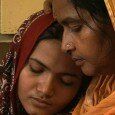By Omar Nawaz
The perpetrators, the police, the ineffective laws — nay, the whole system is loaded against victims of child abuse
Aslam* thought they were good friends before reality bit him. The realization came the hard way for the 15-year-old. He was sexually abused before managing to escape from the hands of two men who attempted to rape him.
The two men, a worker at a cycle workshop and his friend, Muhammad Talib and Basit Satti, respectively befriended the boy who was an orphan working as conductor on a passenger van to make his family meet ends.
The two men invited Aslam to their workshop where they took him indoors and tried to rape him. “First they talked dirty and then proceeded to make physical contact after which I struggled out of their grip and ran out crying for help,” said Muhammad Nawaz, an investigation officer at Koral police station, quoting the boy’s statement given to the police.
The boy managed to escape from the room and reached his house in nearby Taramri Chowk area. Aslam was fortunate to have both escaped the worst and finding a mother who was willing to bring the perpetrators to justice, unlike most parents in the cases of child abuse.
Legal experts dealing with such cases believe ‘a criminal justice system, which is not child friendly, has been a factor in forcing the families of abused children to seek reconciliation.’
“They face resistance first from the immediate family and then the society to keep the matter under wraps for fear it might bring a bad name to their family,” said Advocate Qindeel Shujaat, who has been actively pursuing cases of child abuse and documenting these abuses for public awareness on the gravity of the issue.
Aslam’s mother summoned the courage, taking her child to the police station. She went further ahead to press the police to do their work. The Koral police arrested a suspect within 24 hours of the complaint.
Muhammad Basit, an attendant at a mosque adjacent to the workshop, was put behind bars on suspicion of his involvement in the crime. However, the boy refused to recognise him when he was produced before a magistrate, said police.
The boy said he was not one of the two suspects who tried to rape him. The police got the wrong man, the mother confirmed, too, said the police officer adding that efforts were expedited to arrest the two men who escaped from the scene soon after the crime. However, they were still at large till the filing of this report.
“From investigations to prosecution, nothing is child friendly. Laws are there but they are not practiced in their true spirit,” said Advocate Shujaat, adding that first the police wastes too much time in arresting the suspects and completing the investigation.
The court then puts the case on hold when it finally makes it into one. “At least it takes more than six months for a court to decide in such cases,” the lawyer and the activist of child rights added. A minor child from a village in the jurisdiction of Secretariat police’s story narrates a classic example of what the law enforcers do with the law when it comes to applying it for the benefit of the victim.
The first unfriendly gesture to the victim child comes right from the police officer he meets first, the investigation officer. A seven-year-old boy, a resident of Bhok Talian in the city outskirts, was molested and landed in a hospital two months ago. He kept doctors busy at Poly Clinic because his condition was not good. Fortunately, he survived.
Despite seeing his condition and the subsequent medical treatment, the Secretariat police, refused to register a case against the alleged molester. The ‘excuse’ was a conventional one, absence of medical report. “We were bound to wait till the medical report to ascertain if the ‘allegations’ were true,” said the investigation officer of the case. Even when the victim was in hospital?
“Yes, because these (rape) are very serious charges against anyone. And we have to be hundred percent certain that the crime has occurred,” he said, adding that his problems were compounded by the doctor who unnecessarily delayed the medical report.
However, by the time the medical report came out confirming the boy was raped and police finally registered a case, the alleged molester was gone. He, too, was identified as a juvenile, 14-year-old and was sent to jail by the reluctant investigation officer who said he was confused over what to do. “See they were children. They did not know what they were doing,” he said.
The case was still in court for four months.
Sahil, an organization working for child protection against all forms of abuse particularly child sexual abuse, recorded recently in a report that it took up 113 cases in 2011 where convictions were made and the perpetrators awarded punishments of 25 years of imprisonment and Rs50,000 fines.
However, the organization noted with concern that 127 cases of compromise were reported the same year where families, like that of Akhtar’s, gave up and preferred to ‘reconcile’ with the abusers, mostly voluntarily and sometimes against minor or major monetary benefits.
Data collected by research organizations working on child abuse also revealed that most abusers are known to the victims in cases of attempted rape and rape cases against minors. The laws dealing with abuse against children are stringent. The offence of raping a minor girl is also considered as an act of ‘terrorism’ where the accused would be tried under Zina (Enforcement of Hudood) Ordinance 1979 by a special court constituted under Anti-Terrorism Act 1997.
A police officer said this had already happened in some cases of minors raped in Rawalpindi as the offence was considered a ‘heinous crime’ falling in the preamble of the Anti-Terrorism Act 1997.
However, a Sahil report Cruel Number for 2011 revealed that child abuse cases in Pakistan recorded an increase of over two percent over the preceding year and stood at 2303. The report said 72 percent girls and 28 precent boys were sexually abused. The Sahil report claimed that 505 children were raped or sodomized and there were 279 cases of gang rape and 141 cases of attempted rape in 2011.
It is to be seen how far Aslam and her mother will go because seven-year-old Akhtar’s* family gave up early. Early this year, Akhtar was abducted by a grown up man from a street in front of his house in Shehzad Town while she was on her way to market, sent by her mother to fetch milk. The man was known to the girl. She accepted his invitation to go indoors with the man trusting him as her ‘uncle’.
The man took her to a room adjacent to the road outside. As he tried to force himself upon her, she started crying for help. The man panicked and let her go after struggling to keep her silent for a few minutes, said Shehzad Town police investigation officer quoting from the details given by the girl.
The man fled the scene and could never be arrested. The minor girl’s family gave up even before going to the court. “They said they did not want to pursue the case,” said the police investigation officer.
The police system simply refuses to respond when the abuser in the case of a child abuse is one of their own, a paiti bhai (colleague). Another case resulted in a ‘compromise’ when a 15-year-old girl was raped by a Sub-Inpsector (SI) of Rescue 15 police earlier this year in Islamabad.
A police officer at the Shalimar police station admitted the girl, a school student, was raped as confirmed by the medical report but they failed to proceed against the SI despite making a quick arrest and sending him to jail.
“This is normally the strategy to save our colleague. This way we show that we are serious in punishing the culprit and when the fury of the accuser’s family subsides, we bring them around to a compromise,” conceded a senior police officer who did not want to be named.
SI Narmeen Badshah was arrested on the complaint of the girl who accused that he raped her after blackmailing her. The cop intercepted three school boys and the girl, the victim, in front of McDonald’s restaurant in F-9 Park while they were coming out of it.
The four had bunked school. The SI sent the three boys back to school and took the girl to a flat in Sector F-10 Markaz. Later, the girl accused the cop of raping her. The cop threatened to report her running from school with the boys and register a police case against her if she told anyone of the rape. Badshah sent her home by a cab from the flat where he had raped her.
The girl had to tell her family about the incident as her physical condition deteriorated. The police registered the case after a gap of 15 days after the incident was reported to them and that, too, at the advice of the high ups. Feeling vulnerable and expecting no protection from the system, sometimes the victims of child abuse take matters in their own hands. Not that it helps.
Last year, a case surfaced where apparently a seminary boy died accidentally after getting hit in the head by a fellow student. The follow up police investigations revealed Mazhar* acted in self defence as he tried to keep Zaman* away from abusing him. He did not intend to kill the boy.
Both teenage students of the seminary in F-6/1 slept in the same room where Zaman (17) made physical advances on Mazhar* (16). First, the boy tried verbally to keep his ‘friend’ away, however, failing that he hit him with a steel pipe in the head.
The other boy went silent and motionless and Mazhar thought he was just unconscious while the boy had, in fact, died. It was discovered in the morning by the administrator of the seminary. Police were called and Mazhar was arrested for murder.
Legal experts and organizations working for child protection say the situation was improving where more victims were taking up the courage to report cases of abuse and to subsequently follow them up in the courts. However, this ratio is abysmally low and substantial changes to the criminal justice system are needed to protect children from falling prey to abusers.
*The names have been changed to protect the identities
The writer is a crime reporter based in Islamabad.































































































